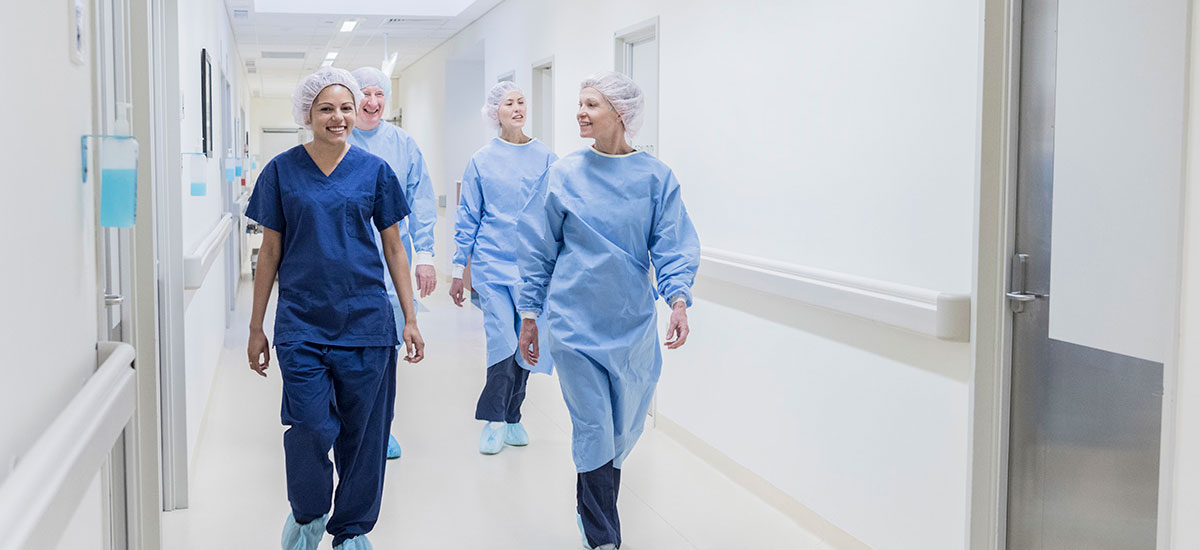REASONS TO SCREEN
Colon cancer screening is one of the most important things you can do for yourself and your loved ones. The evidence is clear that screening for colon cancer saves lives. The American Cancer Society estimates that more than 50,000 Americans will die from colon cancer each year and ranks it as the #3 cancer killer in the United States among both men and women.
Colorectal cancer is highly preventable and has a high curability rate– if caught early.
Contact our center today using our online form.
WHAT IS A COLONOSCOPY?
A colonoscopy is a simple, diagnostic test that allows your physician to examine the entire colon. Using a flexible instrument called a colonoscope, the doctor guides a small light and camera through your colon and performs a thorough examination. You will be comfortably sedated during the procedure. Most patients experience no complications. You should be able to return to regular activities and diet the next day.
People often have a colonoscopy as a screening test to check for polyps. Polyps are growths that might turn into cancer. If polyps are found, they can be removed during the colonoscopy. This is an easy step in the prevention of cancer of the colon.
Since the examination is a direct view of the colon, the colon must be clean to properly and fully visualize the anatomy. It is very important that the preparation for the colonoscopy be completed and carried out according to the physician instructions.
PRE-SCREENING CALL
Approximately 24-28 hours from submitting your request for a screening colonoscopy, you will receive an important phone call from our facility. During this call, the Patient Navigator will collect your medical history and answer any questions that you may have.
Some medications can affect clotting. Please have a list of your medications available, so that when our staff calls they can advise you which medications to stop and which medications to take on the morning of the exam.
ON THE DAY OF YOUR PROCEDURE
- Wear comfortable, loose fitting clothing.
- Please leave all jewelry, watches and other valuables at home.
- Please do not wear contact lenses or makeup.
- Bring your insurance card and photo ID.
- Be sure to have an adult present to accompany you home. Due to the effects from sedation, you will not be permitted to drive yourself home after the procedure.
- Please bring a list of all medications that you are currently taking.
- The physician who will perform your procedure will meet you, take a history and physical and explain the risks and benefits of the procedure.
- You anesthesiologist will meet you on the day of the procedure.
RECOVERY
Once your procedure is completed you will be taken to the recovery unit where a Patient Navigator will at-tend to your care. You will be monitored closely as you recover from the sedation. Once you are awake and alert, your family member will be notified and can join you during your final recovery.
The amount of time you spend in recovery varies and is not the same for everyone. Your safety is our primary concern in the recovery area. We will take proactive measures to help you be comfortable.
Everyone responds differently to the procedure and sedation. You will receive care based on your specific needs.
For your post-procedural safety we advise you to have an adult care for you at home for the first 24 hours. Please follow all discharge instructions.
RISKS, BENEFITS & ALTERNATIVES
A colonoscopy is a relatively safe procedure. All procedures carry both risks and benefits. It is your right to know these and have an opportunity to question the physician prior to consenting to any procedure.
Further discussion of risks and complications can be reviewed with your physician and/or the Patient Navigator.
Why Consider a Colonoscopy?
BENEFITS
The direct view of the colon via colonoscopy saves lives by early detection. A colonoscopy does not guarantee that you will not develop colon cancer, but removing polyps has proven to significantly decrease your risk of developing colon cancer in the future.
ALTERNATIVES
Other medical options may include fecal occult blood tests and/or radiologic imaging tests. These tests have their own limitation and benefits.
PREPARATION
As you might imagine, it is very important to be well prepared for a colonoscopy. A teammate from our facility will call you prior to your procedure to give you information about the procedure and to review specific preparation details needed to cleanse the colon prior to the procedure. This is very important, and all preparation instructions should be followed completely.
You may also be directed to a specific website to receive other important information.
CRITERIA
The criteria for a screening colonoscopy are as follows:
- Men/women 45 years old or above without a history of colon cancer in their family, OR men/women 40 years old or above with a history of colon cancer in their family.
- African American men/women 45 years old or above without a history of colon cancer in their family, OR African American men/women 40 years old or above with a history of colon cancer in their family.
- No significant lung or heart issues
- No blood thinners
- No rectal bleeding
- No abdominal pain
- No changes in bowel habits
- No underlying GI issues
Contact us for more information.
CONVENIENT • HASSLE-FREE • NO PRE-PROCEDURE DOCTOR VISIT
